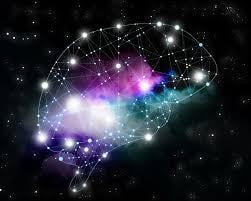The Microgravity Brain:
Investigating the Effects of Spaceflight on the Nervous System
Author: Leanne Monteiro

From the first moon landing to the latest Mars missions, space travel has fascinated us with its potential for discovery and adventure. But beyond the excitement of launch and the beauty of the cosmos, space travel also presents a unique set of challenges to human physiology, including changes to the brain and nervous system. These challenges make space neuroscience an exciting and rapidly growing area of research, offering new insights into how the brain processes sensory information, how it adapts to new environments, and how we can maintain cognitive function in extreme conditions.
One of the primary concerns of space neuroscience is the effect of microgravity on the brain's sensory systems1,2. Astronauts in space experience a range of sensory disruptions, such as disorientation, vertigo, and motion sickness. Studying the effects of microgravity on the vestibular system, which is responsible for maintaining balance and spatial orientation in Earth's gravity, can offer new insights into how the brain processes sensory information and how sensory deficits can be mitigated2. This research has important implications not only for space travel but also for the millions of people on Earth who suffer from vestibular disorders.
Another exciting area of research is the effect of microgravity on the brain's cognitive function. Studies have shown that prolonged exposure to microgravity can impair attention, memory, and decision-making skills3. By studying the underlying neural mechanisms of these cognitive deficits, such as changes in blood flow to the brain and alterations in neural connectivity, researchers can develop interventions to maintain cognitive function during spaceflight. This research could have important implications for space missions that require complex decision-making and problem-solving, such as long-duration missions to Mars.
Space neuroscience also offers opportunities to explore the potential benefits of space travel on the brain. Exposure to the unique sensory environment of space could lead to enhanced neuroplasticity1,4, or the brain's ability to adapt and change in response to new experiences. Isolation and confinement during spaceflight can also have psychological effects that could impact brain function, such as increased stress and anxiety5. Studying these effects could have important implications for developing treatments for neurological disorders that impact neuroplasticity or stress.
Overall, space neuroscience presents a fascinating and promising area of research for neuroscientists. By studying the brain and nervous system under conditions that cannot be replicated on Earth, researchers can develop new insights into sensory processing, cognitive function, and neuroplasticity. The findings from space neuroscience could also have implications for neurological disorders and could lead to the development of new interventions and treatments. As space travel becomes more accessible, the importance of space neuroscience will only continue to grow, offering a new frontier for neuroscience research that is as exciting as it is important.
1. Van Ombergen, A. et al. The effect of spaceflight and microgravity on the human brain. J Neurol264, 18–22 (2017).
2. Carriot, J., Mackrous, I. & Cullen, K. E. Challenges to the Vestibular System in Space: How the Brain Responds and Adapts to Microgravity. Front Neural Circuits15, 760313 (2021).
3. Grabherr, L. & Mast, F. W. Effects of microgravity on cognition: The case of mental imagery. J Vestib Res20, 53–60 (2010).
4. Jillings, S. et al. Prolonged microgravity induces reversible and persistent changes on human cerebral connectivity. Commun Biol6, 46 (2023).
5. Nday, C. M., Frantzidis, C., Jackson, G., Bamidis, P. & Kourtidou-Papadeli, C. Neurophysiological changes in simulated microgravity: An animal model. Neurol India67, S221–S226 (2019).